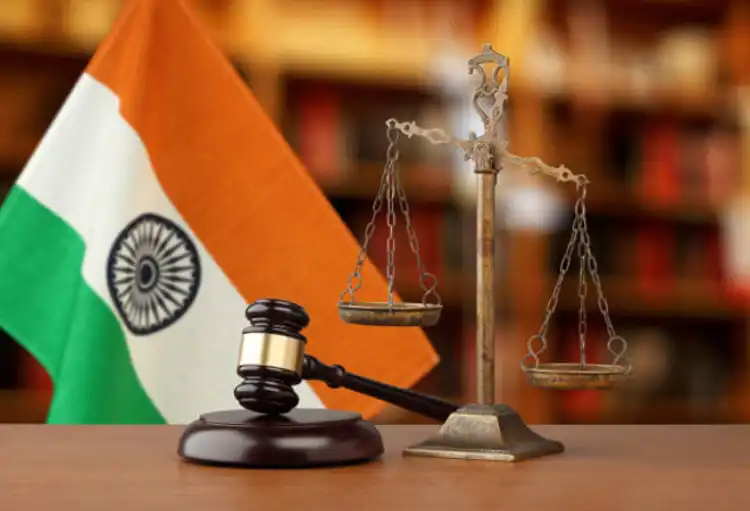Legally change your name in India through an online service offered by many private entities where you don’t have to visit any government office physically. But before you decide to change your name, you must be aware of the following things:
You cannot request or apply to change your name on your marksheet or degree, be it your 10th or 12th grade certificate or college certificates, even after legally changing your name.
There must be a genuine reason for changing your name, and the reason could be as the following:
- Marriage & divorce: As an Indian custom, most Indian wives and even husbands adopt their spouse’s surname, especially in the case of inter-caste or inter-religion marriages.
- Astrological reasons: In India and Hinduism, the name of a newborn child is given as per the Hindu astrological naming system. The name plays an important role in various Hindu rituals and customs, including kundali matching for marriage.
- Change of religion: The freedom to choose and follow religious beliefs is guaranteed by the Indian Constitution to every Indian citizen under Fundamental Rights (Articles 12–35). Forced religion and caste conversion, on the other hand, are prohibited.
- Change of Gender: “Gender change” may be forbidden in the religious books, but the Indian Constitution has not prohibited it. Gender change is a phenomenal discovery that made gender change possible due to advancements in the medical surgery sector.
- Dissatisfaction: When a child is born, his or her name is given by either his parents, relatives, or religious gurus. It may be possible that once you grow up, you realise that you don’t like your name and decide to change it.
- Political reasons: It has become common for Indian politicians to use the name of their ideal politician’s or freedom fighter’s name as their surname. In the present context, most politicians have started using fancy names or surnames to attract voters.
- Neurological reason: The government have permitted to change the name in some neurological and certain disability situations.
The Proof of Identity (POI) or eligible document containing your old name and the new name is required in order to apply for the change of name.
The eligible document and the Proof of Identity (POI) includes:
- Election Voter ID Card.
- UHID Aadhar Card.
- PAN Card.
- Passport.
- Driving licence.
- Transfer Certificate (TC) issued by any government recognised or affiliated institute, college or school.
- Marksheet issued by any government recognised or affiliated institute, college or school.
- Marriage Registration Certificate issued by Marriage Bureau or government recognised Sanatan Dharam Mandir or any other marriage proof.
- Religion change certificate or Religion Registration Certificate issued by government recognised religious institution.
- Any other government issued POI having your name, photo and date of birth.
The required Proof of Address (POA) includes:
- Election Voter ID Card.
- UHID Aadhar Card.
- Passport.
- Driving licence.
- Ration Card.
- Water bill.
- Electric bill.
- Telephone bill (BSNL).
- Any other government issued POA having your name and address.
The following is the procedure for changing one’s name:
Step 1- Obtaining Name Change Affidavit from Notary
Obtaining Name Change Affidavit from Notary, the affidavit should include the reason for the change of name which could be astrological, marriage, divorce and religion change etc.
The affidavit should be printed on the notary and should be signed by at least two ‘A’ Gazetted Officer along with the signatory.
The affidavit can filed to change your surname, first name, last name or your entire name to a completely new name.
Step 2- Name change publication in news paper
An advertisement for the Change of Name to be published in two national newspaper (English & and Hindi); in the following format:
“I, Your Old Name, Residing Your Complete Address, have changed my name to Your New Name vide affidavit Dated dd/mm/yyyy before notary Notary Name.”
Step 3- Notifying the The Gazette of India
Once the advertisement is published, the next step is to notify and visit your state or the central Gazette Office to submit it along with all the documents, including the newspaper and the following document:
- Two copies of Newspapers in which your name was published
- Attested copy of the name change notary
- Proof of Identity (POI)
- Proof of Address (POA)
- Letter to the Secretary for change of name
- Name change deed
- Self-attested legal statement of name change printed out on plain paper
- Prescribed fee challan or receipt for publication in The Gazette of India (the amount varies from state to state and can range from Rs. 500 to 1200).
You will be notified when your name is published in the Indian Gazette, and you will be able to download a copy of the published gazette online; you must keep the gazette, the notary, and the newspaper as proof of your name change for the rest of your life.
Changing your name online without visiting anywhere
There are plenty of trusted entities in India that offer name change services online. All you have to do is provide them with the document and sign the notary, which they will send you by post. These entities may charge 3500 to 7000 rupees for the name change.
These entities will publish the advertisement in the newspaper on your behalf, file the affidavit, and submit the documents to The Gazette of India on your behalf at no extra cost.


